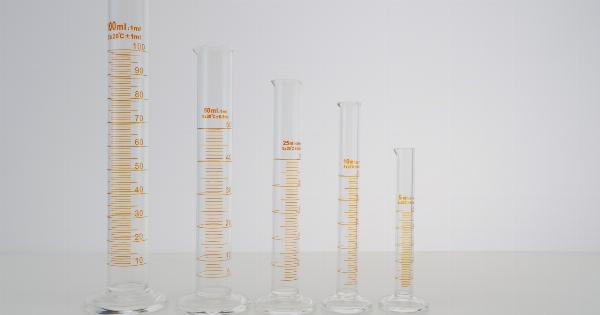Many men wonder about the relationship between the frequency of erections and the size of their penis. It is a common misconception that the frequency of erections directly influences the size of the penis.
In this article, we will explore the facts and dispel the myths associated with this topic.
Understanding Erections
Erections are a natural physiological response that occurs when the penis becomes engorged with blood.
This happens when the brain sends signals to the nerves in the penis, causing the blood vessels to dilate and allow more blood to flow into the erectile tissue.
The frequency of erections varies from person to person. It is normal for men to experience multiple erections throughout the day, especially during sleep.
Some men may have erections upon waking up in the morning, commonly known as “morning wood.” Others may experience erections during sexual arousal or when sexually stimulated.
Penis Size and Erections
The size of the penis is determined by genetic factors and hormones, not by the frequency of erections.
The structure and size of the erectile tissue in the penis remain consistent regardless of how frequently or infrequently a person experiences erections.
While frequent and regular erections are generally a sign of good vascular health and can be an indication of overall sexual health, they do not have a direct impact on penis size.
Myths About Frequent Erections and Penis Size
There are several myths surrounding the relationship between frequent erections and penis size. Let’s debunk some of these common misconceptions:.
Myth 1: More erections lead to a larger penis
There is no scientific evidence to support the belief that having more erections will result in a larger penis. Penis size is determined by genetics, and it does not change with the frequency of erections.
Men with a smaller penis can experience erections just as frequently as those with a larger penis.
Myth 2: Frequent erections can increase penis size
It is not possible for frequent erections to permanently increase the size of the penis. The size of the penis is primarily determined by genetic factors and hormonal influences during development.
While it is true that the penis can temporarily appear larger during an erection, this is due to increased blood flow and does not result in permanent size changes.
Myth 3: Lack of erections leads to a smaller penis
Similarly, the absence of erections does not cause the penis to shrink or decrease in size. The size of the penis remains constant regardless of the frequency of erections.
Factors such as age, health conditions, and hormonal imbalances can affect the ability to achieve and maintain erections, but these do not impact penis size.
The Importance of Sexual Health
While the frequency of erections may not directly affect penis size, it is essential to maintain good sexual health. Regular erections are a sign of healthy blood flow and function of the penis.
If you notice a decrease in the frequency or quality of your erections, it may be an indication of underlying health issues such as cardiovascular problems or hormonal imbalances. In such cases, it is advisable to consult a healthcare professional.
Conclusion
There is no relationship between the frequency of erections and penis size. The size of the penis is determined by genetic factors and hormones, not by the frequency of erections.
While frequent erections can be an indication of good sexual health and overall well-being, they do not have a direct impact on the size of the penis. It is important to focus on maintaining good sexual health and consulting a healthcare professional if you have concerns about your erections or penis size.


























